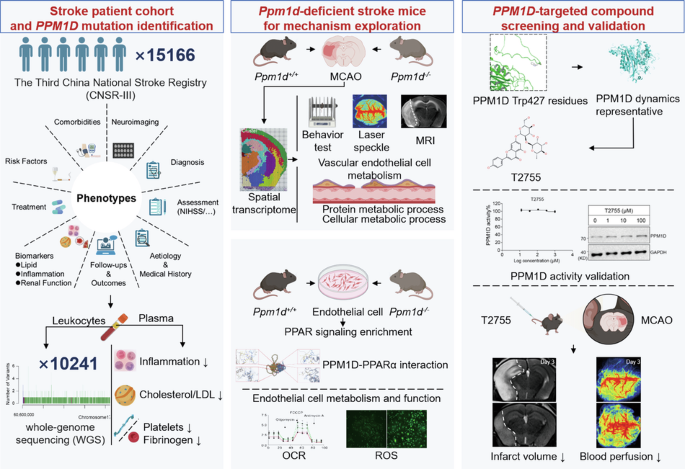Why Kids Mirror Your Emotions, Not Just Your Words - How Parenting Shapes Their Personality
It’s , and shadows his father’s every move. As his dad , Eli the action with a . When the , Eli does the same. Moments later, he sits at the , lets out a , and quietly he sees—but doesn’t yet understand.
This reveals something : children don’t just —they . From our and to our and , young children are to the behaviours of their . Long before they can their feelings or beliefs, they’re busy through , , and .
What they see in us becomes the of who they are becoming.
This seemingly reveals something : a child’s personality isn’t merely . It is , , and through every , , and of their closest .
By age , a child’s are largely , according to leading . Traits such as , , and are deeply , especially with and . The , , and a child grows up in don’t just shape —they help , laying the .
Children enter the world to tune into the of their . A in JAMA Pediatrics found that children exposed to and in early years develop responsible for , , and .
When parents to , , or , they’re doing more than “” — they’re how to do the same. This doesn’t mean ; it means without . For example, saying, “,” helps children learn that to express and manage.
This becomes a child’s for handling life’s inevitable . When a parent , the child’s this stability, fostering that lasts well into .
💡 “.”
— Peggy O’Mara
From to , a child’s first comes from . They don’t just learn to say and —they learn how to , , and .
From the moment they wake, children are and of . They don’t just memorise or —they absorb , , , and .
Psychologist Dr. Alison Gopnik calls children constantly about how the world works by . This explains why simply telling children isn’t enough if they regularly witness or at home. Children take cues from what we far more than what we .
For example, a parent who handles teaches their child to approach disagreements . Conversely, a parent who responds with may unwittingly train a child to react or .
Experts at emphasise that children benefit most when parents are and , rather than striving for . It’s the and from caregivers that shape a child’s and more than .
““ says , Clinical Child Psychologist at the , Sydney University.
isn’t just a buzzword, it’s the for , , and the ability to form .
In cultures where to a child’s needs, children tend to grow into . In contrast, or can foster or later in life.
According to and , the plays a in shaping a child’s . promote the growth of responsible for , , and . Rather than being a static condition, —what they call a —between caregiver and child, influencing the very .¹
is the that weaves and into a child’s and . When caregivers respond with , they nurture a deep sense of and .
Children also absorb far more than words. Their brains are wired to observe —, , —and integrate these cues into their understanding of how to and the world.
🧠
Not all are created equal—or identical. In like , children are taught early to prioritise , , and . In contrast, often encourage and .
Furthermore, many emphasise and , weaving and through and . These diverse approaches highlight how and shape who children become.
Parenting is profoundly shaped by , and culture, in turn, influences . Different societies emphasise varying as virtues, affecting how children learn to relate to themselves and others.
In collectivist cultures such as Japan or many Indigenous Australian communities, traits like , , , and are foundational. Children learn early that their is interwoven with the group’s and the .
Western cultures often prize , , and , encouraging children to develop .
Neither approach is “right” or “wrong,” but each shapes different facets of . Understanding helps parents appreciate diverse pathways to healthy development and reminds us that is not just —it is also a written by , , and .
to a child become the they replay in their mind for years to come. Label a child as “,” and they may into that identity. their bravery, and you reinforce a sense of .
doesn’t just ; it creates. Neuroscience now shows that repeated verbal affirmation helps solidify neural pathways tied to self-belief. What you say today becomes how your child speaks to themselves tomorrow.
Words spoken to children are not just sounds—they are seeds that grow into the stories they tell themselves.
If a child is repeatedly labelled as “shy” or “difficult,” they may internalise those traits, limiting their own possibilities. Conversely, praising effort (“You worked so hard on that puzzle!”) reinforces a growth mindset, encouraging persistence and resilience.
Neuroscience shows that repeated verbal affirmations help build neural pathways that support positive self-concept and confidence. This is why mindful language use is a powerful tool in parenting.
Language creates reality: the way you speak to your child shapes their inner dialogue and how they view themselves and the world.
It’s easy to assume a child’s temperament is fixed at birth—whether they’re “easygoing” or “fiery.” But while temperament provides a foundation, environment and caregiving shape how those traits develop over time.
Supportive, responsive relationships can soften challenging temperaments and amplify positive traits. Stressful or neglectful environments can intensify difficulties.
Personality is a living interplay of biology and experience, not a rigid script.
Myth: “Kids are born with a fixed temperament.”
Truth: While temperament plays a role, a child’s environment and relationships significantly shape personality and behavioural outcomes.
Sarah, a Melbourne mum of three, shared this with us:
“I used to think I needed to be perfect. But when I let myself show vulnerability and apologise, my kids actually became more compassionate and less reactive. They learn more from my humility than from my so-called strength.”
Her story highlights a profound truth: children learn authenticity and emotional courage from caregivers who show up as human, not flawless.
Truth: While temperament plays a role, a child’s environment and relationships significantly shape personality and behavioural outcomes.
Want to build a thriving personality in your child? Try these expert-backed techniques:
Explore Dr. Gabor Maté’s insightful talks on parenting and emotional connection to deepen your understanding.
-
Culture influences foundational traits.
-
Daily interactions are developmentally powerful.
The next time your child throws a tantrum or offers an unexpected hug, pause. Ask yourself: what are they absorbing from me right now? Because the truth is, we’re not just raising kids. We’re shaping future adults who will speak, feel, and respond with the echoes of our everyday choices.
Tonight, reflect on one moment you can slow down and model the calm you wish to see in your child. They’re watching—and learning—from you.













